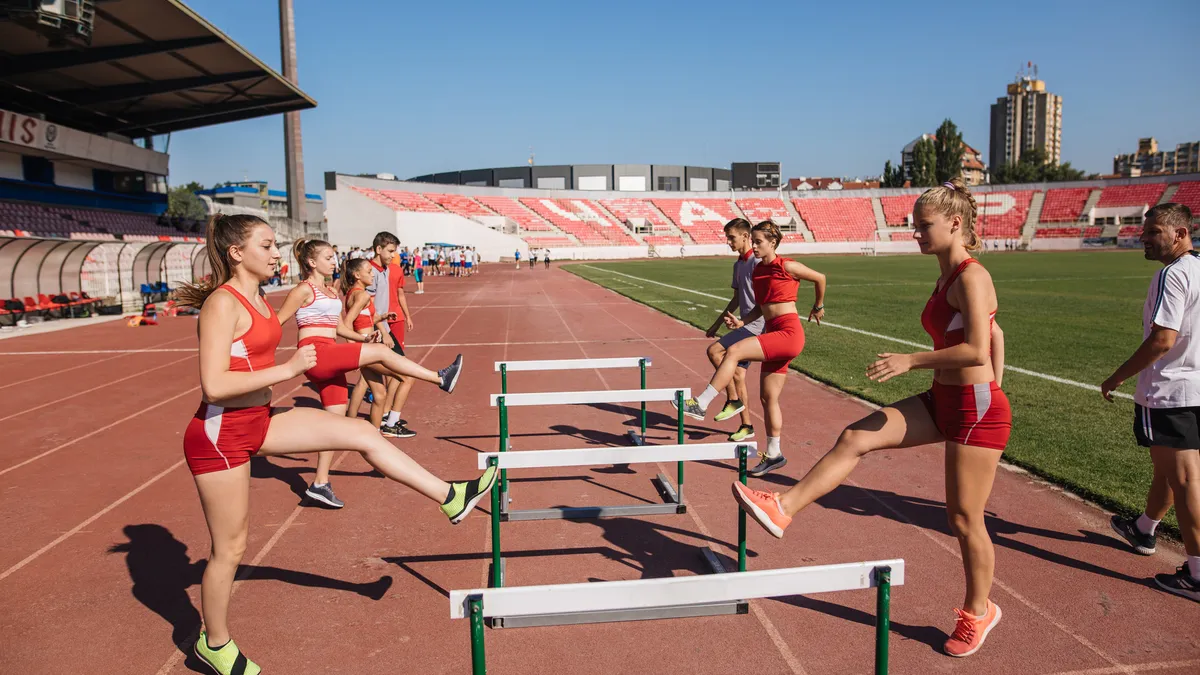Dive Brief:
-
In a new twist to a prominent Connecticut Title IX case on whether transgender girls should be allowed to participate on athletic teams alongside cisgender peers, a federal appeals court has said the cisgender plaintiffs can go back to court to request monetary damages or changes to athletic records.
-
In a Dec. 15 opinion, judges sent Soule v. Connecticut Association of Schools — in which four cisgender girls allege they were deprived of athletic accomplishments in track-and-field events due to the participation of transgender girls — back to district court, where the plaintiffs can appeal for monetary damages or changes to athletic records.
-
The case is one of the foremost raising the question of whether transgender student athletes should be able to participate alongside cisgender peers. It previously piqued the interest of the Trump administration.
Dive Insight:
In Soule v. Connecticut Association of Schools, a group of girls competing in high school track and field sued school districts, state athletic organizations and their transgender peers in 2020, claiming that a policy allowing transgender athletes to participate posed unfair competition. The plaintiffs alleged they were deprived of achievements like medals, placements, scholarships and other opportunities with transgender student athletes on girls’ teams.
Connecticut athletic organizations' policy "degraded each of their accomplishments and scarred their athletic records, irreparably harming each female athlete’s interest in accurate recognition of her athletic achievements,” said Roger Brooks, senior counsel for the Alliance Defending Freedom, which represents the cisgender students challenging Connecticut’s policy.
Last year, the 2nd U.S. Circuit Court of Appeals decided the case in favor of the transgender students, saying the policy did not violate their civil rights under Title IX.
In response, plaintiffs had said they would consider all options, including an appeal that could have taken the case to the U.S. Supreme Court.
However, the case will now proceed in federal district court after last week's 2nd Circuit decision, according to the ADF.
"It is plausible that altering certain public athletic records" to reflect that a cisgender student plaintiff finished first rather than third in a competition "would at least partially redress the alleged denial of equal athletic opportunity by giving plaintiffs the higher placements and titles they would have received without the CIAC policy in place, albeit belatedly," wrote Judge Alison Nathan in her majority opinion.
Nathan said "the same would be true were the shoe on the other foot." If transgender girls were to challenge under Title IX a policy requiring them to play on boys' teams, they would have standing to ask that public records reflect their "alleged accurate athletic achievement."
The American Civil Liberties Union, which represents transgender students involved in the case, seemed hopeful despite the outcome that has the potential to scrub transgender students' achievements from state records. Last week's decision "lays a strong foundation for the district courts to reject these baseless claims on the merits," said ACLU and the ACLU of Connecticut in a joint statement.
While judges agreed that the plaintiffs could ask that public records be changed, they didn't address whether those changes "would be fair or appropriate."
"To be sure, no court has the ability to rewind time," wrote Nathan. "Plaintiffs cannot rerun different races or compete in championships long past. But Plaintiffs 'need not show that a favorable decision will relieve [their] every injury.'"













